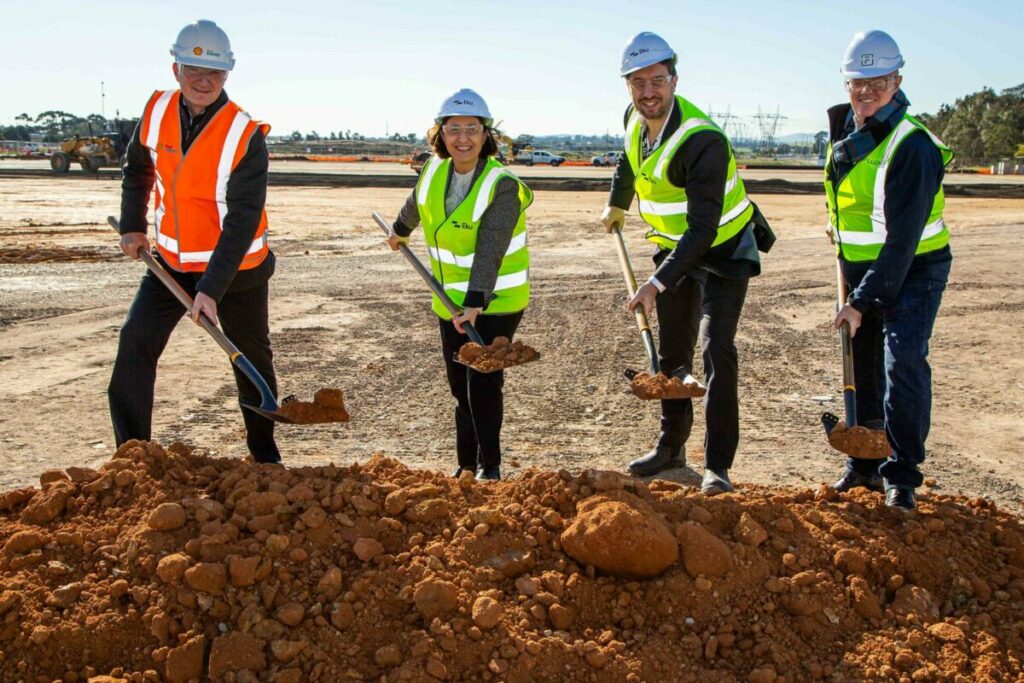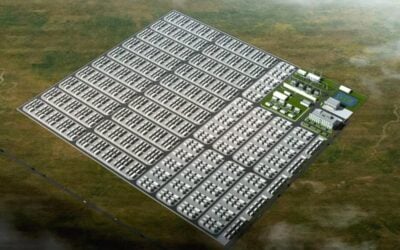
Pre-construction activities commenced this week on Rangebank BESS, a 200MW/400MWh project in Victoria, Australia.
Victoria energy and resources minister Lily d’Ambrosio was among dignitaries in attendance to help ceremonially mark the start of work on the project at Rangebank Business Park in Cranbourne, southeast Melbourne.
Enjoy 12 months of exclusive analysis
- Regular insight and analysis of the industry’s biggest developments
- In-depth interviews with the industry’s leading figures
- Annual digital subscription to the PV Tech Power journal
- Discounts on Solar Media’s portfolio of events, in-person and virtual
It will be connected to the Victorian Shared Transmission System grid via the existing Cranbourne Terminal Station. The substation has been there since 2005, and according to a report by the Australian Energy Market Operator (AEMO) in 2020, has seen summer peak demand grow by around 3.5% annually for the past few years “and is forecast to continue growing strongly”.
Representing one of the areas of Victoria with fastest-growing electricity demand, the station had already reached capacity by the time the report was published three years ago. The BESS will increase the local area’s capacity to host renewable energy generation while provide grid services to keep the system in balance.
Rangebank BESS is being co-developed by Eku Energy and Shell Energy Australia, the energy solutions and renewables arm of the Dutch fossil fuel major.
Eku Energy has similarly powerful backing – the developer was launched in late 2022 by Macquarie Asset Management’s Green Investment Group (GIG), taking on GIG’s two BESS development projects and attracting further investment from the likes of Canadian pension fund BCI.
The pair announced the Rangebank project in March this year, with it having already reached financial close, and targeting going into commercial operation in late 2024. Perfection Private, owner of the business park, is also a minority equity investor.
Shell Energy signed up for 100% of dispatch rights to the BESS over a 20-year term, marking the company’s first direct equity investment into a stationary energy storage project anywhere in the world.
Global energy storage solutions and services provider Fluence has been signed up as BESS supplier and system integrator to the project, and will also service and maintain the asset.
Victoria’s target
In September last year, the state’s Labor Party government of d’Ambrosio and premier Daniel Andrews set an energy storage deployment target of 6.3GW by 2035 for Victoria. One of the highest targets set anywhere in the world to date, it came off the back of Labor’s Climate Change Strategy which set the state a 50% renewable energy target by the end of the decade for Victoria’s electricity sector.
“Grid-scale big batteries like this one are crucial in helping Victoria achieve our energy storage targets of at least 2.6GW of capacity by 2030 and at least 6.3GW by 2035 to ensure we can deliver the benefits of cheaper, renewable energy across the state,” energy and resources minister Lily d’Ambrosio said yesterday.
In fact, just over a month ago, d’Ambrosio was onsite at another significant large-scale BESS project in the state, again with Eku Energy and Fluence also involved.
The commissioning of the 150MW/150MWh Hazelwood BESS, co-developed by Eku Energy with European utility major ENGIE, completed Australia’s first “coal-to-clean energy” transformation: the project is built on the site of Hazelwood Power Station, a retired coal power plant.
Meanwhile, Eku Energy continues its prolific run of battery storage project development, having been selected to deliver a 500MWh flagship BESS project in the Australian Capital Territory (ACT) in April, signing an agreement to develop 1GW of projects in Italy with fellow developer Renera Energy earlier this month, and most recently announcing construction will begin later this year on two projects in the UK totalling 130MWh with system integrator NHOA.






